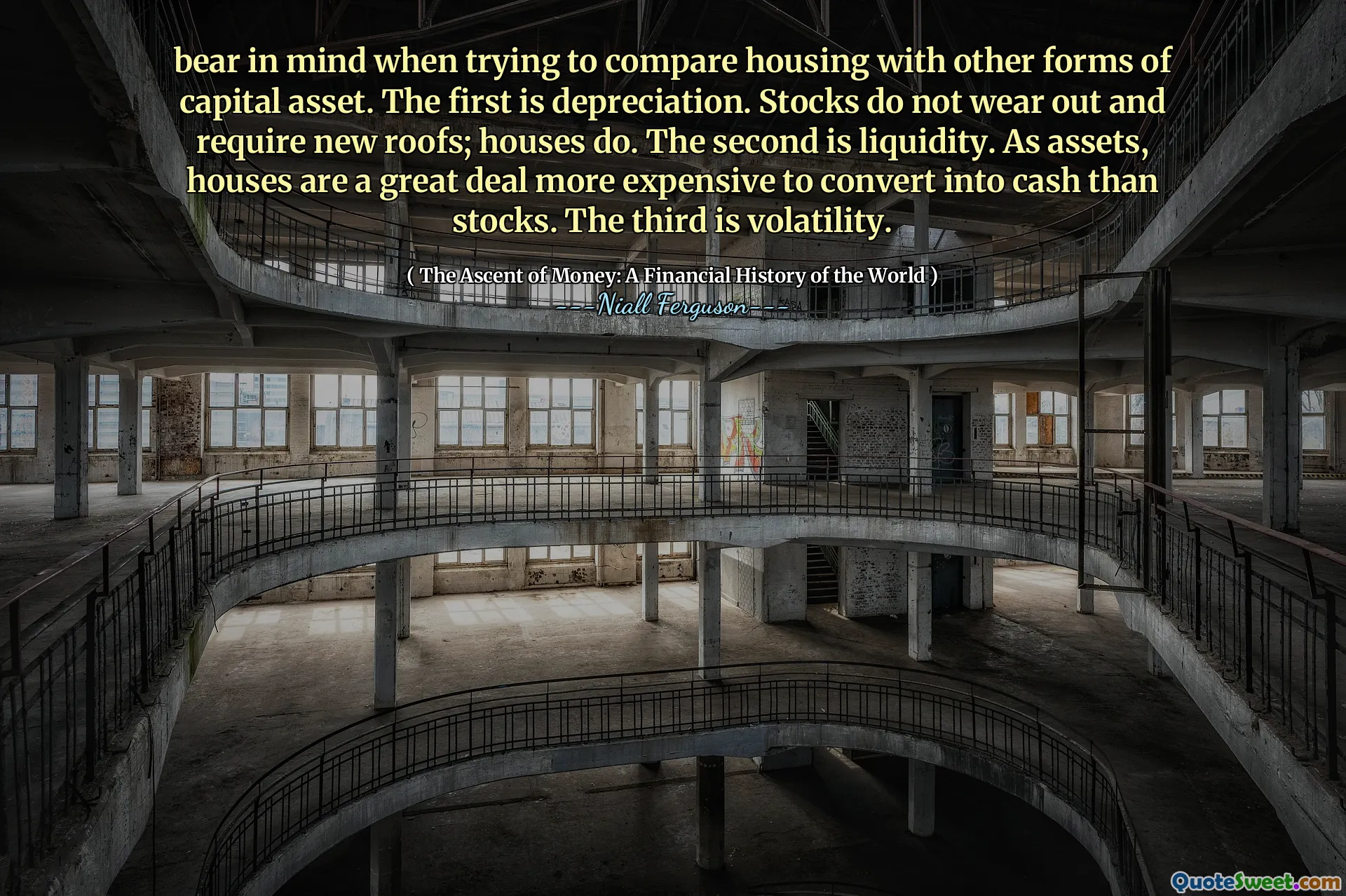
bear in mind when trying to compare housing with other forms of capital asset. The first is depreciation. Stocks do not wear out and require new roofs; houses do. The second is liquidity. As assets, houses are a great deal more expensive to convert into cash than stocks. The third is volatility.
In "The Ascent of Money," Niall Ferguson highlights key differences between housing and other capital assets, particularly stocks. One major distinction is depreciation; unlike stocks, which retain value indefinitely, houses require maintenance and incur wear and tear, leading to a loss in value over time. This inherent depreciation is an essential factor to consider when evaluating housing as an investment.
Another critical point is liquidity. Houses generally take longer and are more costly to convert into cash compared to stocks, which can be quickly sold on a market. Lastly, the volatility of these assets differs significantly. Understanding these factors helps provide a clearer perspective on the nature of housing investments versus stocks and other forms of capital assets.











